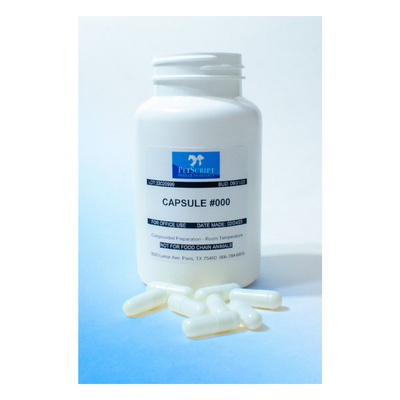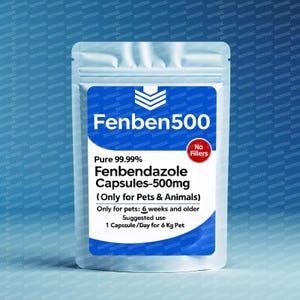Top 10 Reasons fenbendazole Remains Popular in Veterinary Practice
Wiki Article
Checking out the Devices Behind Fenbendazole and Its Influence On Pet Health
Fenbendazole is a widely utilized anthelmintic recognized for its efficiency versus different bloodsuckers. Its key mechanism involves the inhibition of microtubule formation, which interferes with important procedures in these virus. Beyond its antiparasitic residential properties, fenbendazole also appears to enhance immune feedbacks and possesses anti-inflammatory benefits. Comprehending these complex effects could disclose brand-new applications for pet health. Questions remain regarding its full capacity and security profile.The Pharmacokinetics of Fenbendazole
The pharmacokinetics of fenbendazole, a commonly made use of anthelmintic in veterinary medicine, includes the research study of its absorption, circulation, metabolic process, and excretion within animal systems. After management, fenbendazole is quickly soaked up from the intestinal system, with peak plasma focus taking place within hours. Its circulation is influenced by elements such as tissue binding and lipid solubility, allowing it to penetrate various cells properly. The medicine goes through considerable metabolic process mostly in the liver, where it is converted into active and non-active metabolites. These metabolites play a duty in the medication's general efficacy and safety account. Discharging occurs primarily via feces, with a smaller sized proportion eliminated using pee. The half-life of fenbendazole differs amongst types, which impacts application programs. Recognizing these pharmacokinetic homes is important for optimizing its healing usage and guaranteeing effective parasite control in vet practices.Systems of Action Versus Bloodsuckers
Fenbendazole applies its antiparasitic results mostly through the restraint of microtubule formation in bloodsuckers. This interruption impacts their architectural integrity and cellular features, bring about damaged basal metabolism. Therefore, the medicine successfully endangers the survival and reproduction of numerous parasitic organisms.Inhibition of Microtubule Development
Restraint of microtubule formation stands for a crucial device where particular anthelmintic agents, consisting of fenbendazole, apply their effects on parasites. Fenbendazole binds to tubulin, a healthy protein that forms microtubules, disrupting the polymerization procedure essential for microtubule assembly. This disruption hinders essential cellular functions, consisting of mitosis, intracellular transportation, and architectural integrity. As microtubules play an important duty in maintaining the shape and feature of parasitical cells, their restraint brings about cell cycle arrest and eventual death of the parasite. This system is specifically efficient against nematodes, as their dependence on microtubules for movement and nutrient absorption makes them at risk to fenbendazole. The restraint of microtubule formation is an important aspect of fenbendazole's healing efficiency in veterinary medication.Disruption of Power Metabolic Process
Interfering with basal metabolism is one more vital system through which fenbendazole targets parasitic microorganisms. This anthelmintic modifies the energy manufacturing pathways within bloodsuckers, primarily influencing their capability to create adenosine triphosphate (ATP) By inhibiting sugar uptake and interfering with mitochondrial function, fenbendazole restrictions the power resources essential for the survival and recreation of these microorganisms. Because of this, bloodsuckers become significantly prone to environmental stresses and immune responses. The disturbance in energy metabolic process not only affects the bloodsuckers directly however likewise lowers their capability to take in nutrients, further hindering their growth - fenbendazole. In general, the interruption of energy metabolic rate represents a fundamental element of fenbendazole's effectiveness versus different parasitic infections, contributing substantially to improved animal health outcomesProspective Adverse Effects and Security Profile
The potential adverse effects and safety and security account of fenbendazole warrant careful consideration, especially in vet applications. While generally considered as safe, some pets may experience damaging responses, including intestinal disruptions such as vomiting and looseness of the bowels. Additionally, neurological signs, although uncommon, have actually been reported in sensitive people, highlighting the requirement for tracking during treatment.
Fenbendazole's safety in numerous types, including pet dogs and pet cats, has actually been documented, but dose and duration of treatment have to be carefully handled to reduce dangers. Expecting or breast feeding animals may additionally call for unique focus, as the impacts on creating unborn children or nursing spawn are not completely comprehended.
Normal veterinary examinations can aid alleviate potential negative effects and guarantee the medicine is administered properly. Consequently, while fenbendazole is an effective anthelmintic representative, alertness concerning its adverse effects is essential for preserving pet health and wellness.

Fenbendazole's Influence on Immune Function
Fenbendazole has actually been noted for its prospective to regulate body immune system feedbacks in pets. Its anti-inflammatory homes may add to enhanced immune function, giving a dual advantage in taking care of health and wellness (fenbendazole 222). Recognizing these results is essential for evaluating fenbendazole's duty in veterinary medicationImmune System Modulation

Anti-inflammatory Features
Anti-inflammatory impacts represent a significant facet of fenbendazole's influence on immune function. Study indicates that fenbendazole might minimize the production of pro-inflammatory cytokines, which are essential in mediating inflammatory responses. By modulating these cytokines, fenbendazole can potentially minimize inflammation-related conditions in animals. This anti-inflammatory activity not only aids in managing symptoms connected with numerous illness but also boosts general immune system efficacy. In addition, its capacity to advertise a balanced immune response aids stop excessive inflammatory damages, which can cause chronic wellness issues. Consequently, fenbendazole's duty in inflammation management highlights its significance in veterinary medicine, providing a twin benefit of antiparasitic activity and immune system support for animal wellness.Applications Past Conventional Parasitic Infections
While largely acknowledged for its performance against numerous parasitical infections, fenbendazole has amassed attention for prospective applications past this conventional extent. Recent research studies recommend that fenbendazole might have helpful impacts on mobile health and immune action, making it an appealing prospect for managing other health and wellness problems in pets. For circumstances, its reported anti-inflammatory homes might offer alleviation for pets suffering from chronic inflammatory illness. In addition, some study shows that fenbendazole could play a role in supporting the total health of pets by enhancing nutrient absorption and intestinal health and wellness. In addition, its possible as a complement therapy in cancer cells treatment has actually sparked rate of interest, as preliminary searchings for recommend it could inhibit tumor cell growth in particular contexts. These varied applications highlight fenbendazole's versatility, encouraging additional exploration into its multifaceted advantages for pet health and wellness past its conventional usage as a deworming representative.Future Study Instructions and Implications for Pet Wellness
The exploration of fenbendazole's potential applications has opened brand-new avenues for study aimed at boosting pet wellness. Future research studies could concentrate on its performance against a broader variety of microorganisms, including microorganisms and viruses, fenbendazole thereby increasing its duty in veterinary medicine. The effects of fenbendazole's systems, such as its effect on immune modulation, warrant better examination to understand just how it can strengthen total health in various varieties.Furthermore, research might explore excellent does and formulations to make the most of efficiency while reducing possible side effects. Investigating fenbendazole's synergistic results with other drugs could cause more efficient therapy protocols. Longitudinal researches assessing lasting results in animals treated with fenbendazole might give important understandings right into its safety and performance. In general, the ongoing expedition of fenbendazole provides appealing possibility to boost animal health and wellness, demanding a joint approach amongst researchers, veterinarians, and pharmaceutical designers to promote advancements in this field.
Often Asked Concerns
Can Fenbendazole Be Utilized in Animals for Bloodsucker Prevention?
The concern of whether fenbendazole can be used in livestock for bloodsucker avoidance matters, as manufacturers seek reliable treatments (fenbendazole 222). Study shows it might supply advantages, yet correct standards and veterinary guidance are important for risk-free useWhat Is the Suggested Dose of Fenbendazole for Various Animals?

Are There Any Kind Of Known Medicine Communications With Fenbendazole?
Existing expertise indicates that fenbendazole might communicate with certain medications, possibly affecting their efficiency or metabolic process. Vet specialists suggest seeking advice from a vet to analyze specific animal instances and figure out any kind of feasible interactions before management.Exactly How Does Fenbendazole Compare to Other Antiparasitic Drugs?
Fenbendazole is usually contrasted to various other antiparasitic medications based upon efficiency, spectrum of task, and safety and security accounts. It is favored for its efficiency versus a variety of bloodsuckers while normally showing very little side results in animals.Is Fenbendazole Effective Versus Viral or Bacterial Infections in Animals?
The performance of fenbendazole versus viral or bacterial infections in pets remains unproven. Study primarily concentrates on its antiparasitic residential properties, with limited evidence sustaining any kind of duty in dealing with non-parasitic infections in veterinary medication.Report this wiki page